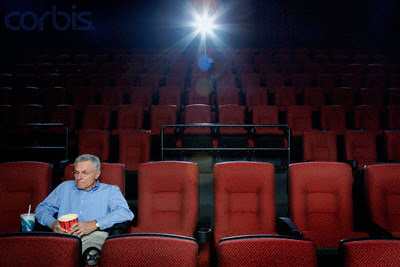
It is unfortunate that some people incorrectly view a church service as a spectator sport. It is even more unfortunate when this attitude is expressed or acted out in an Orthodox Divine Liturgy. But, when people come in late and leave early they are acting like the only thing important is to show up and receive the Body and Blood of Christ from the priest. Sadly, I have even heard a priest speak of the congregation as the "audience". These attitudes betray a fundamental misunderstanding of who we all are, and what we are doing. If we were just spectators in the Divine Liturgy it would mean that a priest could celebrate the Divine Liturgy by himself. Canonically, this is not allowed, and for good reason. There is a priest at the altar who is of that select number who has been graced to be an icon of Christ and to be a celebrant of the mysteries, but the church teaches that all Orthodox Christians are part of that greater priesthood of believers. When the priest opens the service with, "Blessed is the Kingdom of the Father and the Son and the Holy Spirit…" the congregation responds with an "Amen". This response is an affirmation and a ratification of what the priest is saying. St. Paul speaks of this "Amen" in I Corinthians. St. Jerome writes that the voice of the people shouting "Amen" was so loud that it sounded like an earthquake.
As Fr. Emmanuel Hatzidakis has said, "Through the "Amen" we are taught that the priest is not by himself. He does not bless the Holy Trinity in his own name alone, but in the name of all the people of God gathered in worship."
What follows is the Litany of Peace. Interestingly, ten of the eleven petitions are addressed to the congregation and not to God. The priest or deacon makes the horizontal entreaty to the congregation. It is the congregation who wings these prayers vertically toward God by saying "Lord, have mercy." They aren't complete prayers without the congregation doing their part. And, throughout this service and most of the other services of the church, there is a necessity for the congregation to do their part. When the deacon or priest says, "Let us all say with all our soul and with all our mind…", or "Let us the faithful, again and again, in peace pray to the Lord" he is emphasizing the importance of full involvement with the service: full involvement of the priests and deacons, and full involvement of the congregation.
So, it is important for the congregation to physically be there for the entire service. And, once present, it is important that all in attendance (whether in the nave, narthex, or at the altar) be tuned heavenward.
No comments:
Post a Comment